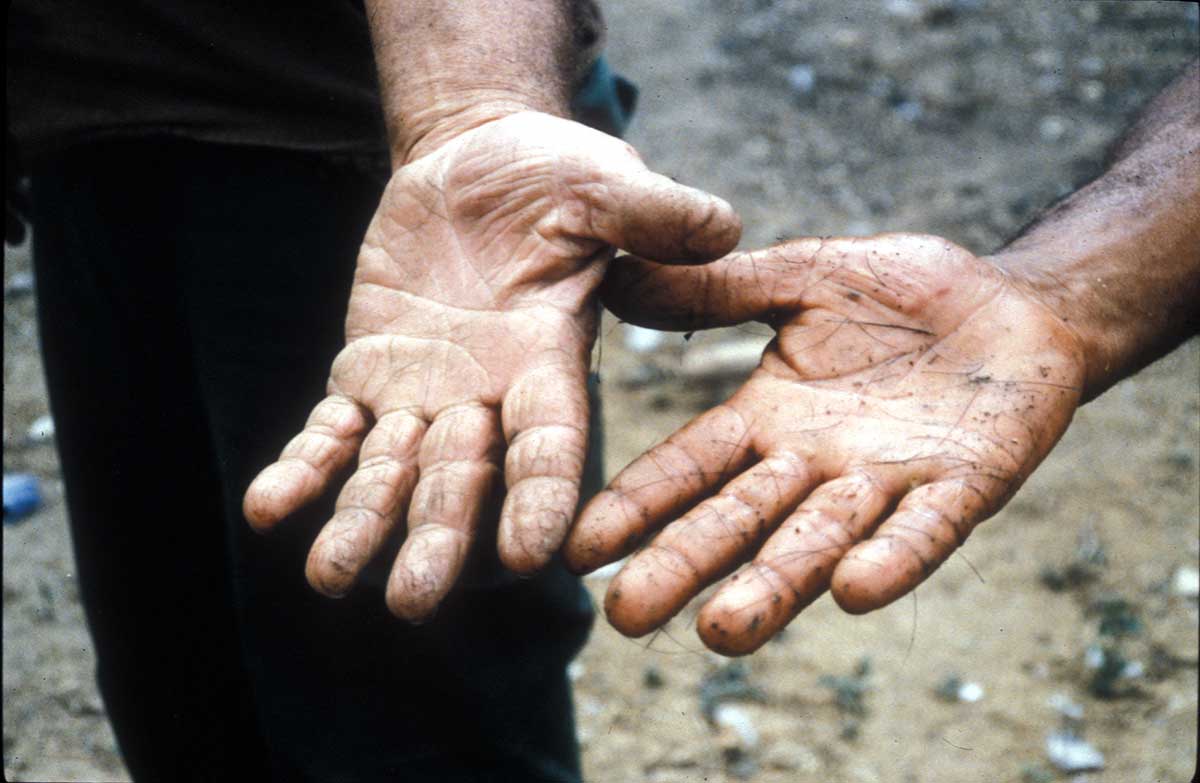When I first met my father’s younger brother José Antonio “Tiki” Guerra in the fall of 1997, he had spent most of his life attempting to sustain the small farm that his parents had founded in the 1940s. While a key goal of the Revolution of 1959 had been to implement an agrarian reform that would grant land to small farmers and support those whose small plots already existed, the adoption of Communism after 1961 changed all of that. Suddenly, the government’s most desirable goal was the elimination of small farmers’ economic autonomy from the state and control over the selection of crops, production, market and labor: this goal ostensibly guaranteed the success of massive, once privately owned estates and plantations the state had nationalized in 1959-1961 and operated directly as granjas, government-owned and -managed farms. By the late 1970s and early 80s, thousands of farmers had given up their land, unable to survive under policies that prevented them from accessing seeds, tractors, spare parts, nearby water resources, let alone plant or sell produce directly to consumers, rather than the state. Tiki “surrendered” his farm to the state in 1981. After moving to his in-laws’ house in the small town of Puerta de Golpe, Pinar del Río, he worked at a government dairy, milking cows and cleaning stalls for years until it shut down amidst the disastrous Special Period. Uncle Tiki’s hands, like those of his neighbor and fellow peasant, Mingo, spoke to the many years of field labor and the hard life that peasants like him continued to endure despite promises—and, he would have added, much propaganda—to the contrary. Tiki died in September 2018.
